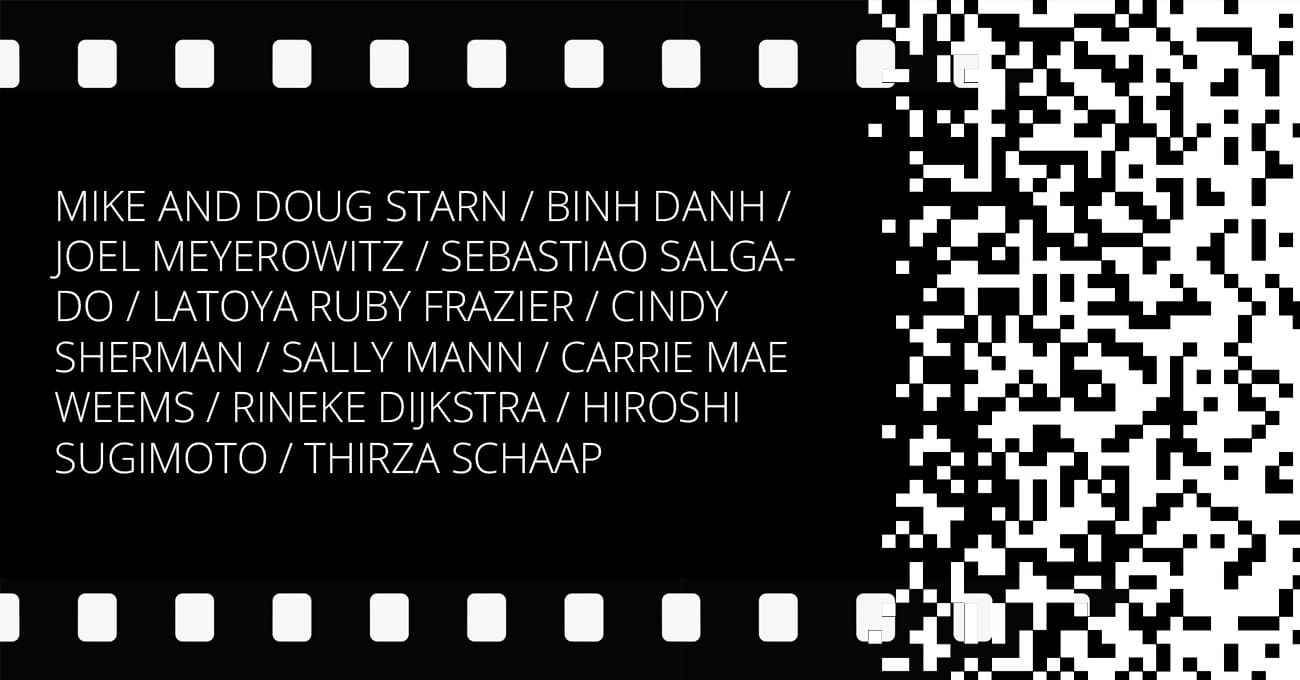PHO 302: Late 20th Century Photography to Today
Ground your creative work in a knowledge of 20th and contemporary artists.
Closely examine and critically analyze photographic work produced from the 1980s to present day. Explore photographic work and artistic styles, concepts, and exhibitions in relation to historical context and the impact of photography on art and culture. Through the development of both written and visual work you will present your research, an expanded view of photography, technology, aesthetics, and artistic concepts.

About This Course
Project-Based Learning
Students will research 20th century and contemporary artists in photography, developing their knowledge of photography through short research papers, discussions, and creative projects. Students will demonstrate their skills by creating two art projects: a photomontage and a commercial project inspired by research into a important artist.
What Skills Will I Develop?
Students in this course can expect to learn to:
- Explore, examine, research, and critically analyze photographic work produced from the 1980s to present day with consideration of artistic styles, points of view, concepts, and exhibitions.
- Examine, gather, analyze, synthesize, and professionally present written and visual research in alignment with the course content, assignment criteria, and presentation guidelines.
- Demonstrate the ability to write about and present content/research related to an expanded view of photography, technology, aesthetics, artistic concepts, historical context, as well as the impact of photography on art and culture.
- Actively participate in class discussions/meetings, constructively assess the work of your peers, and enhance your creative work based upon feedback.
- If applicable to your course projects:
- Demonstrate effective and efficient use of your camera and/or other image making techniques to create compelling images with consideration of lighting, color, exposure, composition, art/design principles, and point of view in alignment with the course content and assignment criteria.
- Effectively conceptualize and post-process (cull, edit/enhance, and retouch), manage files, explore multiple image making techniques, and produce compelling, innovative, and professional portfolio ready images.
- Demonstrate your ability to effectively plan, stage, and execute photo shoots by adapting for a variety of settings and lighting situations (studio and on-location), in fulfillment of project goals. Reshoot when necessary or recommended.
- Apply and demonstrate technically proficient retouching, careful consideration of contrast, cropping, exposure, and color correction techniques to improve or enhance photographic images to a professional level utilizing appropriate software such as Adobe Lightroom and Photoshop.
What Software and Supplies Do I Need?
- Computer with Internet connection.
- Access to a standalone digital camera with manual control over ISO, Aperture, Shutter Speed, and White Balance, that allows for shooting in RAW format.
- Adobe Lightroom Classic or equivalent program.
- Basic experience in the software package needed for this course.
Course Outline
From the Modern to the Now
We will introduce how Modernism gave way to Postmodernism and the prevailing concerns of today's photographers.
The Photograph as an Object
We will explore photographers who foreground the photograph as a material object through the use of techniques like camera obscura and daguerreotypes.
Editorial and Documentary Photography
We will survey photographers who document our day to day world and current events as an act of witnessing.
Narrative Photography
We will take a look at contemporary photographers who tell compelling stories through their photography, including self-fictionalizing and complicating the idea of the portrait.
Environment, Landscape, and Cityscape
We will explore photographers who are updating the genre of "landscape" photography to include human environments and explore our impact on the world around us.
Frequently Asked Questions (FAQ)
How Do The Courses Work?
Our courses are project-based and instructor-led. In each course you’ll complete a series of lectures, projects, discussions, and critiques designed to stretch your creative skills. Weekly assignment deadlines keep you on track, and with no set-logins or Zoom meetings, you can build your studies around your schedule.
Who Are The Instructors?
Our courses are developed and taught by our industry-leading faculty of creative professionals. This means that you’ll learn in-demand skills, get feedback on your work, and build a portfolio of creative work. View our Student Gallery for featured student projects.
When Can I Start?
Classes start January, April, and August, and this course is completed in a 15-week term. College credit from this course can be applied to a range of Degree and Certificate programs at Sessions College. You can enroll in this course on an individual basis or as part of a program.
Explore our Programs: Bachelor's Degree | Associate Degree | Undergraduate Certificate
How Do I Register?
To register for a program, complete our program application. To register for this course on an individual basis, please contact our admissions team at admissions@sessions.edu. An Admissions Advisor will contact you to setup your enrollment.
| Course Tuition and Fees | |
|---|---|
| Tuition | $510/credit |
| Registration Fee* | $200 |
| Total Course Price | $1730 |
Registration fees are nonrefundable after 5 days from enrollment.
Is Sessions College accredited?
Yes. Since 2001, Sessions College has been accredited by the Distance Education Accrediting Commission (DEAC). The Distance Education Accrediting Commission is listed by the U.S. Department of Education as a recognized accrediting agency and is recognized by the Council for Higher Education Accreditation (CHEA).
